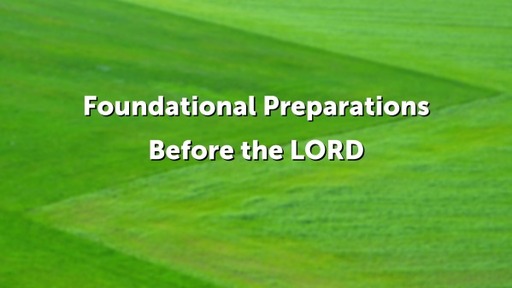Foundational Preparations Before the LORD

1. The call to come close, 24:12-18.
A. Command to ‘come up,’ 24:12
B. Coordinating care for the people, 24:13-14.
C. The cloud of God’s glory, 24:15-18.
2. The call for a free-will offering, 25:1-9.
A. The request of God, 25:1-2.
B. The requested items, 25:3-7.
C. The reason for the request, 25:8-9.
What would you give to have God descend and dwell in the hearts of lost and dying sinners? Jesus gave his very life. Since eternity past, God the Son had enjoyed all the glories of Heaven. But he gave it all up by coming into the world, becoming a man, and finally dying on the cross. And he did it for this reason: to live in us. After he was raised from the dead, Jesus sent his Holy Spirit to make a dwelling place for God in our hearts. We help complete this work by spreading the gospel. We preach Jesus Christ as the Savior who died on the cross for sinners and the Lord who rose from the dead. When people believe in Jesus, God the Holy Spirit comes to live in them forever. This is why we bring our offerings. This is why we support the ministry of God’s Word through the local church and give to the global work of the gospel. It is so the living God will dwell in people’s hearts through faith (cf. Eph. 3:17). What will you give to accomplish this?